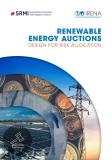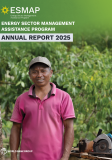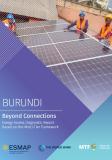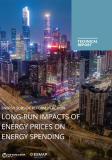Publications
As part of the Cooling Facility, an Environmental and Social Sustainability Framework (ESSF) has been developed. The ESSF describes standards, processes and tools that are considered as the basis of the Environmental and Social management approach of the Facility.
It also includes indicative templates and outlines of potential environmental and social documents that may be required for the proposed projects under the Cooling Facility. The ESSF describes the main steps to be taken by each Borrower under the Cooling Facility to manage the environmental and social issues associated with its respective project and to meet the World Bank Environmental and Social Standards (ESSs), as presented under the World Bank Environmental and Social Framework (ESF).
As part of the Cooling Facility, the ESSF will be applied to all projects included in the Cooling Facility. The projects are located in Bangladesh, El Salvador, Kenya, Malawi, North Macedonia, Panama, Sao Tome and Principe, Somalia, and Sri Lanka.
Download the ESSF document: English | Bengali | Macedonian | Portuguese | Sinhala | Spanish | Somali
The present document establishes the Environmental and Social Sustainability Framework of the World Bank and GCF Cooling Facility. It describes standards, procedures, processes, and tools that are considered as the basis of the environmental and social approach of the Cooling Facility. Please note that the English version of the Cooling Facility E&S Sustainability Framework shall prevail over the other translated versions in case of doubt in its understanding.



